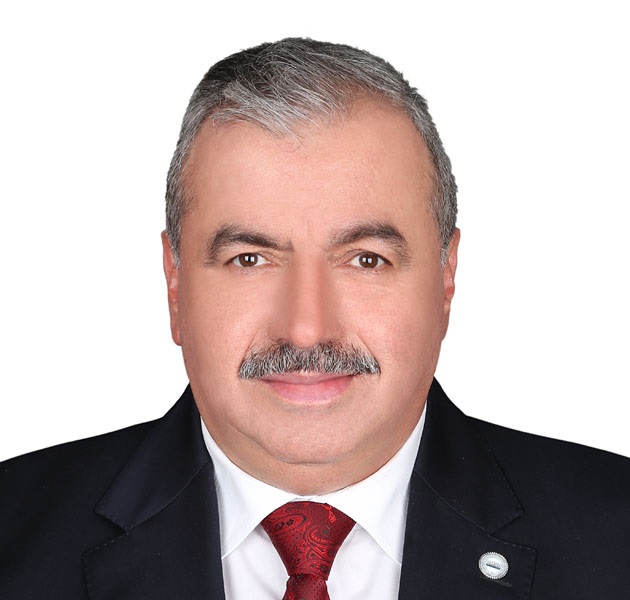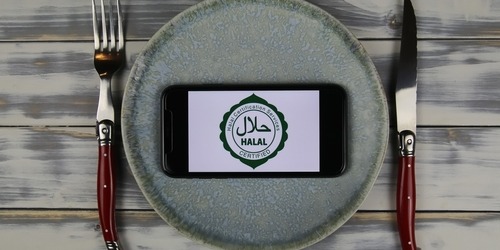Explainer: How collaborations can help unify halal standards globally
We speak with İhsan ÖVÜT, Secretary General at the Standards and Metrology Institute for Islamic Countries (SMIIC) about halal standards, collaboration, technology deployment and promoting awareness
How does SMIIC collaborate with other international organizations and regulatory bodies to harmonize halal standards globally?
Considering that international collaboration in standardization fosters a more interconnected, efficient, and equitable global economy, SMIIC, since its establishment, collaborates with other international organizations and regulatory bodies to unify halal standards globally.
In this regard, SMIIC has signed cooperation agreements with the African Organisation for Standardisation (ARSO), Arab Industrial Development, Standardization, and Mining Organization (AIDSMO), GCC Standardization Organization (GSO), GCC Accreditation Center (GAC) and various other regional or international organizations related to standardization.
These agreements facilitate collaboration on developing and harmonizing standards, promoting mutual recognition of standards, and ensuring that the needs of diverse communities are met through unified and consistent standardization efforts.

There are also ongoing dialogues with the International Organization for Standardization (ISO) and the World Trade Organization (WTO) Technical Barriers to Trade (TBT). These dialogues with ISO and WTO TBT exemplify the importance of collaboration in creating a more integrated, efficient, and innovative global economy. These cooperation efforts, exerted for joint actions, are aimed at not only enhancing trade and economic growth but also contributing to the overall well-being and safety of global populations.
By aligning its standards with global best practices and ensuring consistency across different regions, SMIIC aims to establish a unified framework for halal standards that facilitates trade and ensures compliance with the requirements of the Muslim community worldwide.
In what ways does SMIIC engage with stakeholders, including businesses, consumers, and government bodies, to promote awareness and adoption of halal standards?
SMIIC engages with stakeholders through various channels to promote awareness and adoption of halal standards.
Here are some ways:
Partnerships and Collaborations: SMIIC, via its technical committees composed of experts and representatives from SMIIC Member State representative governmental bodies, works to develop OIC/SMIIC Standards.
SMIIC simultaneously collaborates with government bodies, businesses, and consumer organizations to promote OIC/SMIIC halal standards. These partnerships facilitate the exchange of knowledge and resources, helping to ensure that OIC/SMIIC halal standards are widely understood, adopted, and implemented.
Capacity Building Workshops and Seminars: SMIIC conducts workshops, seminars, and training programs to educate stakeholders about OIC/SMIIC halal standards and their importance. These events provide an opportunity for stakeholders to learn about the latest developments in the halal industry, OIC/SMIIC Halal Standards, foundation knowledge, and use and implementation of OIC/SMIIC Standards.
Consultation and Feedback Mechanisms: SMIIC maintains open channels of communication with stakeholders, including businesses, consumers, and government bodies, to solicit feedback and input on OIC/SMIIC halal standards. By incorporating stakeholders' perspectives, SMIIC ensures that its standards remain relevant and effective.
International Conferences and Events: SMIIC participates in international conferences and events related to halal industry development. These platforms provide an opportunity for SMIIC to showcase its work, exchange knowledge with other stakeholders, and advocate for the adoption of halal standards globally.
Through these various initiatives, SMIIC actively engages with stakeholders to promote awareness and adoption of the OIC/SMIIC halal standards, contributing to the growth and development of the halal industry worldwide.
How is SMIIC leveraging technologies to improve halal standards and communication?
SMIIC is using technology to improve standards and communication in several effective ways. Firstly, we use a digital tool called the SMIIC Information System (SMIIC IS). This system helps us manage all the work related to developing and updating standards digitally. This makes the process faster and more organized.
Secondly, we are investing in research and development with artificial intelligence (AI) to make our standardization processes even better. Our AI system, AI Conversation, is now a part of the SMIIC Information System. It helps us work more efficiently and accurately.
Lastly, we have launched the SMIIC Academy, an e-learning platform that focuses on teaching about standards, certification, and accreditation in the halal industry. We offer online courses, webinars, and more. The academy is designed to help professionals and students learn more about maintaining the quality and safety of halal products.
Can you share any success stories or notable achievements of SMIIC in advancing halal standards and practices globally?
The introduction of three OIC/SMIIC Halal Standards for the first time on May 17, 2011 can be considered as the start of SMIIC’s contribution to the halal industry.
We have announced May 17 of each year as “World Halal Standards Day” to promote the implementation of OIC/SMIIC Standards and underline their importance.
The first three standards on halal food, certification and accreditation, followed by new standards addressing industry needs in areas such as tourism, pharmaceuticals, logistics, and cosmetics paved the way for the establishment of the OIC Global Halal Quality Infrastructure. The worldwide implementation of OIC/SMIIC Standards by relevant parties in both OIC and non-OIC countries motivates SMIIC to further address industry needs and organize trainings on these standards.
Therefore, we have consolidated our training activities under one platform and launched the SMIIC Academy.
The academy provides trainings in the fields of standardization (especially OIC/SMIIC Halal Standards for our members and the private sector) metrology, and conformity assessment.
This year, we are expecting the publication of OIC/SMIIC 49 - Terms and Definitions related to Halal Standards and the technical committees are diligently working on other topics related to halal.
We can expect to see the standards on test methods for porcine detection; halal packaging; halal on-board meals; halal cosmetics claims; classification for wellness spa under halal tourism services; halal medical tourism; testing technics for identification of pig skin; identification of pig hair in textile; and others.
Does SMIIC plan to develop halal standards for plant-based proteins or lab-grown meat?
The SMIIC Technical Committee 1 is currently exploring the possibility of developing one or more standards related to various halal-critical issues. To this end, a dedicated study group has been established, comprising eight member countries - Saudi Arabia, Egypt, Sudan, Palestine, Bosnia & Herzegovina, Malaysia, Pakistan, and Türkiye - along with a liaison from IIFA.
The study group, New Protein Alternatives, is tasked with preparing a comprehensive visibility report on four main topics: cultured meat, insect protein, plant-based meat, and algae proteins.
Three meetings have been conducted so far and two more meetings are to be organized before finalizing the report.

Salaam Gateway